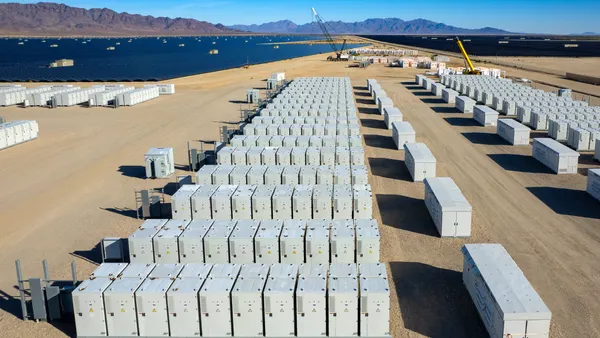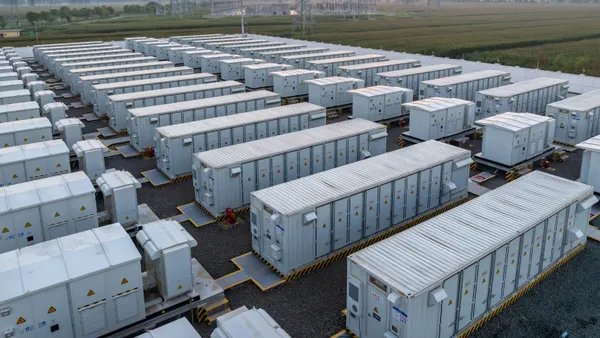Dive Brief:
- The Puerto Rico Energy Commission, the utility regulatory body for the U.S. territory, filed a motion in federal court on Friday asking a judge to clarify the commission's regulatory power over the island's public utility as federal officials move to take a bigger role in the rebuild of the island's grid.
- Specifically, PREC wants Judge Laura Taylor Swain to ensure that the federal oversight board that manages Puerto Rico's finances and anyone it appoints cannot overrule decisions of the utility commission. The court should direct PREC and the federal board to develop "protocols that preserve compatibilities and avoid conflict," the filing argues.
- PREC's request comes the week after the Financial Oversight and Management Board (FOMB) appointed retired Air Force Colonel Noel Zamont as the "chief transformation officer" for PREPA, giving him “all the powers of a chief executive officer." The PREPA board and Gov. Ricardo Rosselló rejected that appointment, setting up a hearing before Judge Swain on Nov. 13.
Dive Insight:
Coordination of the grid rebuild in Puerto Rico has all the trappings of a long jurisdictional fight between federal and territorial officials — something the island's utility regulators appear eager to avoid with their new court filing.
"The Commission's and the FOMB's purposes are compatible and mutually reinforcing," energy lawyer Scott Hempling wrote in the filing for PREC. While there may be some overlap in responsibilities regarding PREPA's budgeting and expenditures, "[t]here are ready ways to coordinate these two efforts so that each strengthens the other while avoiding duplication of effort," he argued.
Last week, PREPA's governing board rejected not just Zamont's appointment as the CTO, but the FOMC's ability to make any final decisions at all, saying they "do not recognize the authority [of the fiscal board to] impose their decisions, only to recommend."
That move sets a court showdown later this month over the Puerto Rico Oversight, Management, and Economic Stability Act (PROMESA), the 2016 federal law that created the FOMB and authorized it to appoint officials to manage the island's public agencies.
Whether or not Judge Swain approves Zamont's appointment, PREC argued that any court order "should explicitly refrain from preempting, or authorizing FOMB to preempt, the Commission's authority."
PROMESA currently prevents FOMB from approving infrastructure projects if PREC finds they are not consistent with the utility's integrated resource plan, and the regulatory body pushed Swain to preserve PREC's authority over PREPA projects and rates if Zamont or another transformation officer is appointed.
"Nothing in PROMESA authorizes FOMB to expand the activities of PREPA beyond those authorized by Commonwealth law," PREC wrote. "If FOMB instead intends its CTO Motion to seek authority for Mr. Zamont without any PREPA accountability to the Commission ... we ask that FOMB make its position clear."
In the meantime, PREC argues Judge Swain can make the situation clear by holding that federal preemption "is not necessary at this time, because potential conflicts are avoidable and coordination is beneficial" and by directing "counsel for FOMB and the Commission to develop protocols that preserve, and mutually reinforce, the duties and powers of each."
PREC asked Swain to order the organizations to develop a "memorandum of coordination" by Nov. 20 to file with the court. If those efforts fail, PREC wants each entity to develop its own plans and submit them by Nov. 29.
"In short, there is every reason to cause the Commission and FOMB to mesh their roles," the filing argues. "There is no good reason to eliminate the Commission's role; no good reason to return Puerto Rico to the pre-2014 days of a monopoly not subject to the discipline of an independent regulator."
The jurisdictional jockeying takes place as Puerto Rico remains in the midst of the longest blackout in U.S. history. About 30% of the island's power generation is up and running, and the U.S. Army Corps. of Engineers has installed nearly 400 temporary generators, but the vast majority of island inhabitants remain without grid power.












